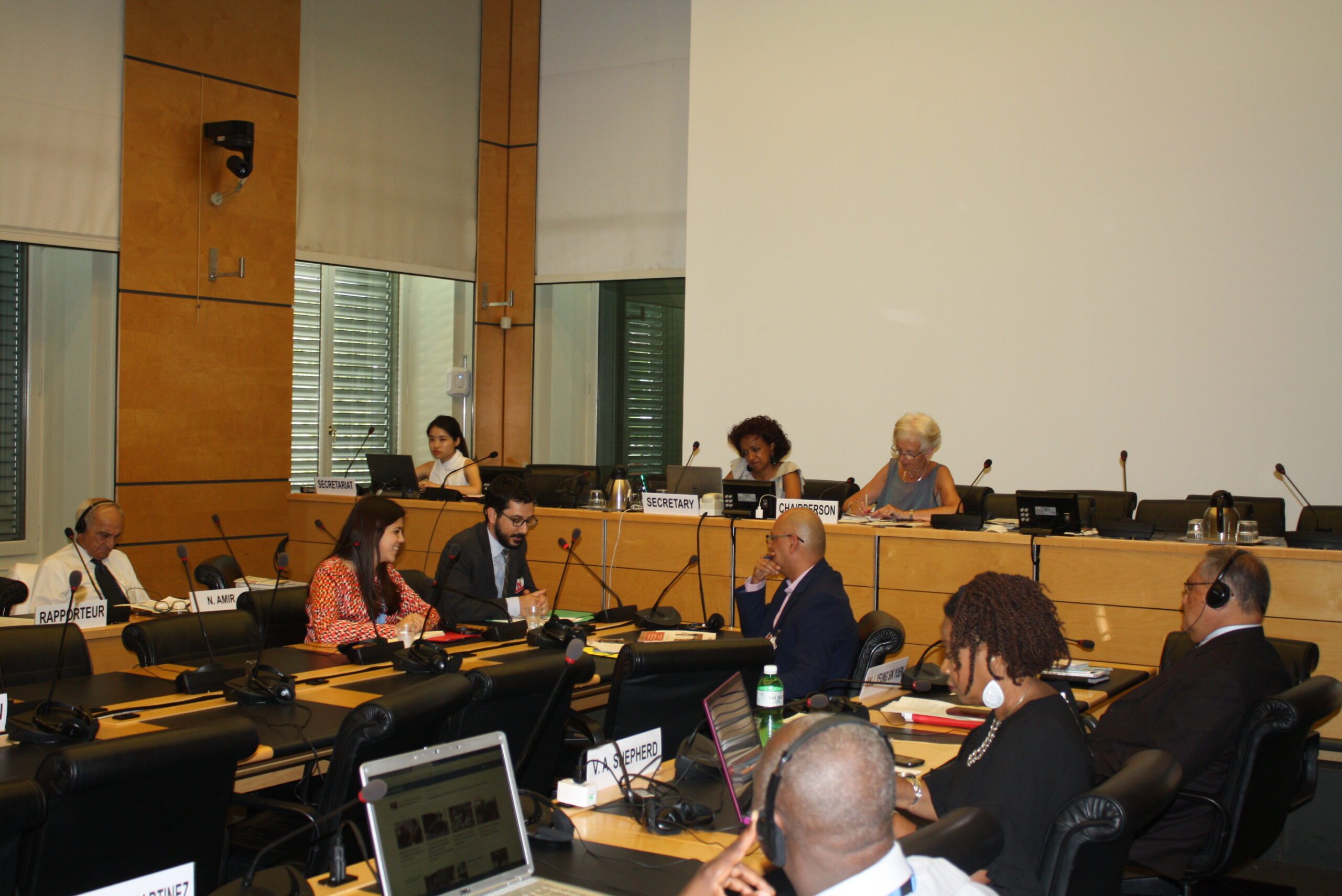Race & Equality Presents CERD Report to Committee in Geneva
Geneva, Switzerland – The Institute on Race, Equality and Human Rights presented its report, The Impact of the United Nations Committee on the Elimination of Racial Discrimination (CERD) in Brazil, […]

Geneva, Switzerland – The Institute on Race, Equality and Human Rights presented its report, The Impact of the United Nations Committee on the Elimination of Racial Discrimination (CERD) in Brazil, Colombia, Cuba, the Dominican Republic and Peru, before the Committee itself in a closed session this Friday, August 4. The meeting was called to present the findings of the Race & Equality’s report on the Committee’s work and impact, and to begin a dialogue about how CERD can use the report’s conclusions to work more effectively Latin America.
Dominic Procopio, Race & Equality’s Latin American Program Officer, told the Committee that despite CERD’s achievements in the region, more still can be done to combat racism in Latin America. Sharing some of the report’s conclusions, he told Committee members that state institutions fighting racism remain weak and that states and civil society have not sufficiently utilized the Committee’s recommendations. At the same time, CERD’s impact has also been limited by a lack of awareness of the Committee’s work throughout the region, he said, noting that this was compounded in countries such as Brazil with poor reporting records. Procopio also stressed the need to continue to strengthen civil society participation in the Committee’s activities.
To address these issues, Procopio urged the Committee to request more information on state institutions in its concluding observations and recommendations to states, and to look for measures to hold states accountable for ignoring CERD’s recommendations. He also called for the Committee to prioritize a stronger communications strategy, to look for ways to remain engaged in non-reporting countries and to develop new methods for increasing civil society participation, including holding regional sessions.
Committee members expressed their gratitude and appreciation for the report. Gay McDougall, CERD member from the United States, agreed that the Committee should work harder to help strengthen state institutions working on discrimination and suggested looking for partnerships within the UN to accomplish this. “CERD can look to coordinate with field offices of the OHCHR, who have funding to do this work,” she said.
Regarding NGO’s role in the Committee’s work, Francisco Cali Tzay, CERD member from Guatemala, was clear. “I come from civil society and I will always support their strong engagement with the Committee,” he said. Cali Tzay also underscored that civil society must do its part to encourage wide NGO participation, echoing another finding of the report.
Several Committee members offered encouragement to expand the geographic focus of the study to include other countries and regions. Verene Shepard, member from Jamaica, noted that a similar report focused on the English-speaking Caribbean would be particularly useful.
The report’s recommendation on regional sessions was met with interest by the members. While Colombian member Pastor Murillo expressed skepticism that CERD could feasibly hold sessions outside of Geneva, several other members suggested the idea be looked at further. Yeung Kam John Yeung Sik Yuen, of Mauritius, was most enthusiastic in his support for bringing CERD to the regions, and Anastasia Crickley of Ireland—the Committee’s chair—also supported the idea.
In the coming weeks, Race & Equality will present the report’s findings to civil society and governmental officials in the Latin American countries covered in the report with the aim to contribute to CERD’s more effective use not only in these countries, but throughout the region.

